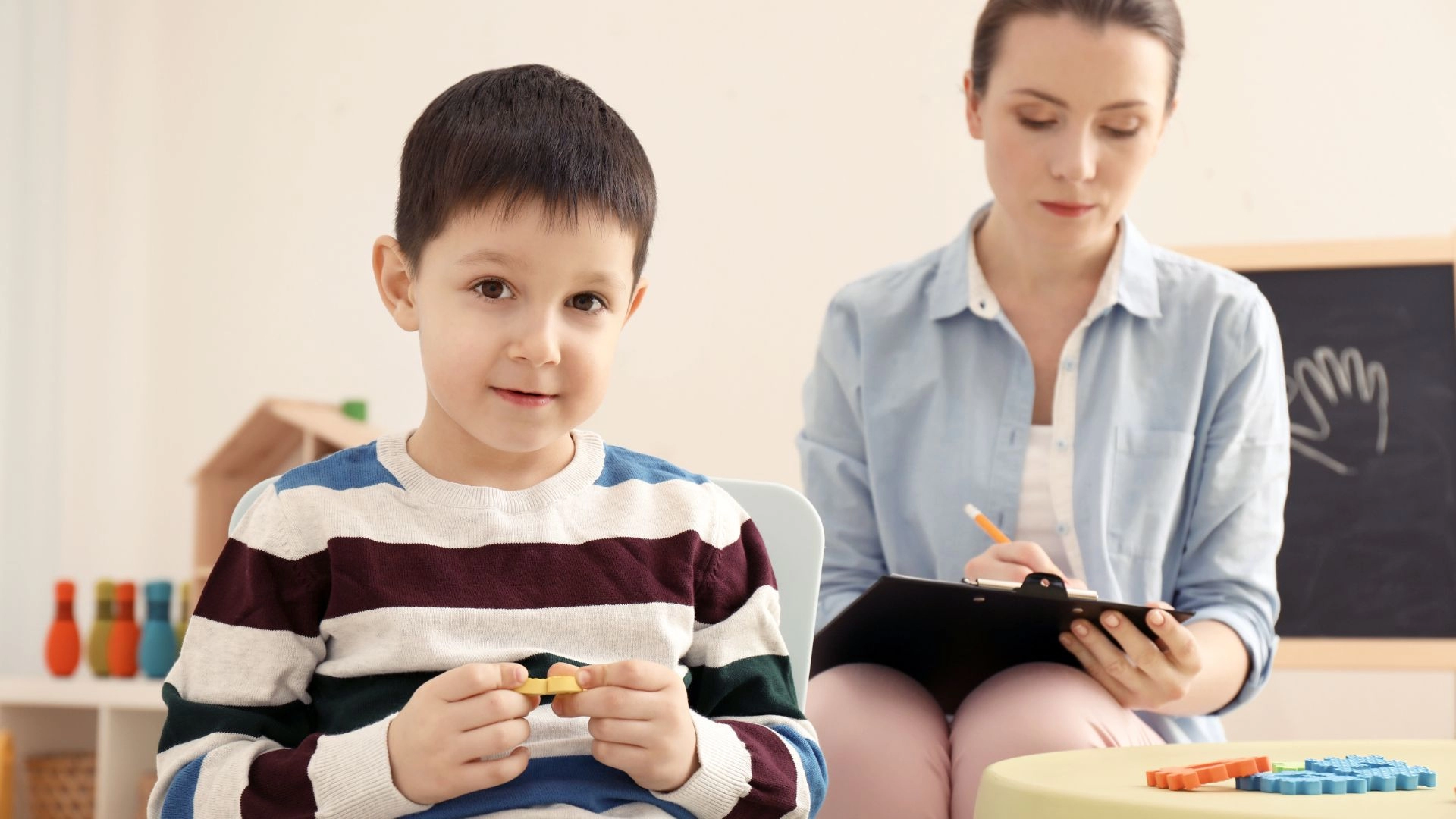We understand how challenging it can be when a child is struggling with an eating disorder. Child Counseling Therapy offers vital support, combining approaches like Cognitive Behavioral Therapy (CBT) and trauma-informed care. These methods help children navigate their emotions, challenge negative thoughts, and build healthier relationships with food. Family involvement is also key, fostering open communication and trust. With compassionate therapists, we create a nurturing space for children to express themselves and develop coping strategies. Understanding these therapies is essential, and there’s much more to explore about how child counseling can make a positive impact on recovery.

About Child Counselling Therapy
Child counselling therapy is a specialized approach designed to help young ones navigate their emotions and challenges in a safe, supportive environment. We recognize that children face a myriad of difficulties, ranging from anxiety and depression to the impacts of trauma. Through child therapy, we provide essential emotional support for children, allowing them to express their feelings and learn coping strategies.
In our sessions, we create a nurturing space where kids can feel understood and valued. This is especially important for those who have experienced childhood trauma, as addressing these issues early on can make a significant difference in their lives. We focus on building a trusting relationship, helping children feel comfortable sharing their thoughts.
For those struggling with eating disorders, therapy for childhood trauma often becomes a critical part of the treatment process. By integrating various therapeutic techniques, we can help children confront their challenges and develop healthier relationships with food and their bodies. Our goal is to empower them, fostering resilience and self-esteem so they can thrive. In this way, child counseling becomes an essential tool for promoting overall well-being and facilitating recovery.
Understanding Eating Disorders in Children
Eating disorders in children are complex mental health challenges that can deeply affect their emotional and physical well-being, making early intervention essential for recovery. We often see that these disorders can stem from a variety of factors, including societal pressures surrounding body image and the emotional turmoil that leads to unhealthy coping mechanisms like emotional eating.
It’s vital for us to understand how these conditions manifest in children. They may struggle with distorted perceptions of their bodies, feeling inadequate or dissatisfied despite being healthy. In recognizing these feelings, we can advocate for access to effective child mental health services, which play a vital role in treatment.
Cognitive-behavioral therapy (CBT) is one of the most effective therapeutic approaches for addressing eating disorders in children. Through CBT, children learn to identify negative thought patterns and develop healthier behaviors around food and self-image. This supportive framework can empower them to regain control over their emotions and foster a more positive body image.

The Role of Child Therapists in Treating Eating Disorders
Therapists play a pivotal role in helping children navigate the complexities of eating disorders, providing the support and guidance necessary for recovery and emotional healing. As child therapists, we utilize a variety of therapeutic interventions for children that are tailored to meet their unique needs. These approaches not only address the symptoms of the eating disorder but also promote overall child mental wellness.
In our child counseling services, we create a safe, non-judgmental space where kids can express their feelings and fears. This openness is essential for understanding the underlying issues contributing to their eating disorders. Through eating disorder therapy, we help children develop healthier coping mechanisms and improve their self-esteem.
We also focus on building resilience, teaching children how to face challenges without resorting to harmful behaviors. By fostering a positive relationship with food and their bodies, we empower them to regain control over their lives. Ultimately, our goal is to guide children toward a path of healing, equipping them with the tools they need to thrive both emotionally and physically. Together, we can help them reclaim their joy and well-being in a supportive and understanding environment.
Family Therapy for Children with Eating Disorders
How can family therapy enhance the recovery journey for children struggling with eating disorders? Family counseling therapy plays a pivotal role in this process, as it addresses not only the child’s needs but also the dynamics within the family. Together, we can create a supportive environment that fosters healing and understanding.
In therapy for kids, we utilize various child therapy techniques that encourage open communication and expression of feelings. This approach helps us identify any underlying issues that may contribute to the eating disorder, whether it’s stress, anxiety, or a history of child abuse. By involving the entire family, we strengthen the emotional well-being of children and reinforce positive behaviors.
As we navigate this journey together, family therapy can help us rebuild trust and connection, enabling children to feel safe and supported. It allows us to work through challenges as a unit, focusing on effective coping strategies and healthy communication. Ultimately, by engaging in family counseling therapy, we create a nurturing atmosphere that empowers our children to overcome their struggles and promotes lasting recovery.

Cognitive Behavioral Therapy (CBT) for Child Eating Disorders
In addition to family therapy, Cognitive Behavioral Therapy (CBT) offers a structured approach that can greatly support children struggling with eating disorders by helping them challenge and change negative thought patterns. Through CBT, we can help our children identify harmful beliefs related to food, body image, and self-worth, which are often at the core of eating disorder recovery.
This child therapy method emphasizes the connection between thoughts, feelings, and behaviors, allowing children to see how their distorted thoughts contribute to unhealthy behaviors. By working together, we can teach them coping strategies to manage their emotions and confront anxieties surrounding food and body image.
CBT also addresses various child behavior disorders that may accompany eating disorders, such as anxiety and depression, enhancing overall mental health. It equips children with tools to develop healthier relationships with food, fostering a more positive self-image and promoting resilience.
As we navigate this process, our empathy and support are essential. By understanding the challenges our children face and encouraging them through CBT, we can guide them toward a more balanced and fulfilling life, marking a significant step in their journey to recovery.
Play Therapy as a Tool for Addressing Eating Disorders
Play therapy can be a powerful tool for helping children express their feelings and experiences related to eating disorders in a safe and engaging way. Through therapeutic play, we create an environment where children can explore their emotions and thoughts without judgment. This child-focused therapy allows them to communicate in a language they understand best—play.
In our sessions, we incorporate a variety of child therapy activities that resonate with each child’s unique experiences. Whether it’s using dolls, storytelling, or role-playing, these activities help facilitate discussions about body image, self-esteem, and food-related anxieties. As we delve into these playful interactions, we raise eating disorder awareness and empower children to confront their challenges in a constructive manner.
What’s essential is that we remain empathetic and supportive throughout this journey. We’re not just addressing the eating disorder; we’re nurturing the child’s emotional well-being. By fostering a safe space where they can articulate their feelings, we help them build resilience and healthier coping strategies. Ultimately, play therapy isn’t just about fun; it’s a significant step in healing and recovery for children facing eating disorders.
Art Therapy for Emotional Expression in Children with Eating Disorders
Art therapy offers a unique and effective way for children to express their emotions surrounding eating disorders, allowing them to communicate feelings that might be difficult to put into words. In our child therapy programs, we use art as a medium for emotional healing for children, enabling them to explore their inner struggles creatively.
By engaging in art therapy for kids, children can visualize their thoughts and feelings, which often leads to breakthroughs in understanding their eating disorders. This form of child behavioral therapy nurtures self-expression and fosters a safe environment where kids can share their experiences without judgment.
Moreover, art therapy can be particularly beneficial for those struggling with therapy for childhood anxiety. By creating art, children might find solace and relief from overwhelming emotions, making it easier for them to confront their challenges.
Through this therapeutic approach, we aim to build resilience and promote healing, guiding children towards a healthier relationship with food and self-image. Ultimately, art therapy not only aids in emotional expression but also paves the way for a brighter future.
Addressing Anxiety and Eating Disorders in Children
Addressing anxiety and eating disorders in children requires a compassionate approach that acknowledges their unique struggles and fosters a sense of safety and understanding. We understand that anxiety in children often intertwines with eating disorders, making it essential to address both in child therapy sessions. An eating disorder specialist can help us navigate these complexities, ensuring that every child feels heard and supported.
In our work, we emphasize the importance of psychological therapy for children, which allows us to explore the underlying factors contributing to their anxiety and eating behaviors. Through evidence-based techniques, we can help children develop healthier coping mechanisms. Additionally, child psychiatry plays an essential role in evaluating and, if necessary, treating any co-occurring mental health conditions, providing a holistic approach to their care.
In our therapy sessions, we aim to create a nurturing environment where children can express their fears and challenges surrounding food and body image. By fostering open communication and building trust, we empower them to confront their anxiety and overcome their eating disorders. Ultimately, our goal is to guide children toward recovery, enabling them to lead happier, healthier lives.

School Counseling and Support for Children with Eating Disorders
Steering through the school environment can be particularly challenging for children with eating disorders, and that’s where school counseling plays an essential role in providing the support they need. We must recognize that school counselors are often the frontline advocates for these kids, offering a safe space for them to express their feelings and struggles. Through child counseling therapy, they can address the emotional and psychological aspects of eating disorders, helping students navigate their complex emotions.
Additionally, school counseling initiatives can incorporate eating disorder education, empowering children to understand their challenges better and promoting healthier attitudes towards food and body image. By integrating behavioral therapy for kids into the school setting, counselors can equip students with practical tools and coping strategies to manage their behaviors and emotions effectively.
Together, we can foster an environment where children feel supported and understood. Through collaboration between parents, teachers, and counselors, we can create a thorough support system that champions the well-being of every child facing these difficulties. It’s essential for us to stand together in this journey, ensuring that our children receive the compassionate care and guidance they deserve.
Parenting Support in Managing Child Eating Disorders
Steering through the challenges of a child’s eating disorder can feel overwhelming for many parents, but with the right support and resources, we can create a nurturing environment that promotes healing and understanding. Parenting support plays a vital role in managing disordered eating, as it helps us feel less isolated and more informed.
Engaging in child counseling therapy not only benefits our children but also equips us with tools to better understand their struggles. When we actively participate in their treatment, we can help facilitate open conversations about mental health in kids, emphasizing that it’s okay to seek help.
It’s essential to recognize the signs of an eating disorder diagnosis and to approach these conversations with empathy and care. By fostering a safe space, we can encourage our children to express their feelings without fear of judgment.
Moreover, educating ourselves about disordered eating can empower us to provide appropriate support and guidance. Together, we can advocate for our child’s needs, ensuring they receive the necessary resources and understanding to navigate their journey towards recovery. Let’s remember, we’re not alone in this; support is available, and healing is possible.
Group Therapy for Kids Dealing with Eating Disorders
How can group therapy provide a supportive space for kids grappling with eating disorders, fostering connections that aid in their recovery journey? In group therapy for kids, children facing similar challenges can come together to share their experiences, fears, and triumphs. This shared understanding creates a safe environment where they don’t feel isolated in their struggles.
Through child counseling therapy, we help kids learn from one another and develop essential coping strategies. These sessions often promote empathy and self-acceptance, which are vital elements in combating the negative self-image often associated with eating disorders. As kids interact in recovery support groups, they realize that they’re not alone in their battles, which can be incredibly empowering.
Child and adolescent counseling in a group setting also encourages communication skills, helping kids articulate their feelings and thoughts more effectively. This fosters deeper connections with peers and encourages a sense of community. Ultimately, group therapy not only nurtures friendships but also lays a foundation for lasting support as they navigate their recovery journey together.
Trauma-Informed Therapy for Children with Eating Disorders
Trauma-informed therapy offers a compassionate approach for children struggling with eating disorders, recognizing the deep connections between past trauma and their current challenges. By understanding how trauma impacts emotional regulation in children, we can help them navigate their feelings and behaviors more effectively. This therapy emphasizes safety, trust, and empowerment, fostering a supportive environment where kids can express themselves without fear.
In child counseling therapy, we work collaboratively with children to uncover the roots of their eating disorders. We address underlying issues, such as anxiety or depression, often intertwined with their challenges. Through child depression therapy, we guide children in identifying and processing their emotions, helping them develop healthier coping strategies.
Moreover, trauma-informed therapy incorporates techniques for child behavior modification, enabling children to replace negative behaviors associated with their eating disorders with positive ones. This holistic approach not only aids in recovery from eating disorders but also promotes overall mental well-being. By focusing on the child’s unique experiences and needs, we can provide the support they need to heal and thrive, allowing for a brighter, healthier future. Together, we can make a difference in their lives.
Adolescent Counseling for Eating Disorders
As we continue to explore the complexities of eating disorders, it’s important to recognize that adolescents face unique challenges that require tailored counseling approaches. During this critical development stage, many teens grapple with body dissatisfaction and disordered thoughts that can severely impact their mental and physical health.
Adolescent counseling offers a safe space for them to express these feelings, helping to identify the root causes of their struggles. We often find that integrating therapy for kids with anxiety can be particularly effective, as anxiety frequently coexists with eating disorders. Through psychotherapy, we can empower adolescents to challenge negative self-perceptions and develop healthier coping mechanisms.
We aim to foster a supportive environment where adolescents can learn to articulate their feelings and thoughts without judgment. By providing them with the tools to navigate their emotions, we can help them build resilience against societal pressures and internalized standards. Remember, recovery is a journey, and with the right adolescent counseling, our teens can regain a sense of control over their lives and bodies. Together, we can guide them toward a healthier, more positive future.
Long-Term Strategies for Managing Eating Disorders in Children
Recognizing the ongoing struggle with eating disorders in children, we can implement long-term strategies that not only address the immediate concerns but also promote lasting recovery and well-being. One effective approach is engaging in child psychotherapy, which allows children to explore their feelings around food and body image in a safe environment.
For those dealing with anorexia or binge eating, it’s essential to create a supportive atmosphere where we emphasize body positivity. Encouraging children to appreciate their bodies for what they can do rather than how they look can foster a healthier self-image.
We should also collaborate closely with a mental health professional who specializes in eating disorders. This expert can guide us in tailoring strategies that cater to each child’s unique needs, ensuring they feel understood and supported throughout their journey.
Lastly, educating families about these disorders can help build a network of support that reinforces healthy eating habits and emotional well-being. By committing to these long-term strategies, we can empower children to overcome their eating disorders and lead fulfilling lives.
Contact Our Child Counselling Therapy Center for Eating Disorder Support
If you’re seeking effective support for your child struggling with an eating disorder, our Child Counselling Therapy Center is here to help you navigate this challenging journey together. We recognize how distressing it can be to watch your child face issues with their eating habits, anxiety, and emotional well-being.
At our Child Counselling Therapy Center, we provide specialized therapy designed to meet the individual needs of children struggling with eating disorders. Our compassionate therapists are skilled in creating a safe and supportive environment where your child can openly express their feelings and develop healthier coping mechanisms. We understand that some children may also be dealing with underlying issues such as grief, so we offer grief counseling to help them process their emotions.
Together, we will work on fostering a healthier relationship with food while addressing any anxiety that may be contributing to your child’s challenges. With our guidance, your child can build resilience and learn to manage their emotions more effectively. Don’t hesitate to reach out; we’re here to support you and your child on every step of their healing journey.

Frequently Asked Questions
What Are the Common Signs of Eating Disorders in Children?
When we think about the common signs of eating disorders in children, we often notice changes in their behavior and physical appearance. They might become withdrawn, obsess over food, or display extreme fluctuations in weight. We may also see them avoiding meals or expressing intense dissatisfaction with their bodies. If we’re aware of these signs, we can better support our children and encourage open conversations about their feelings and experiences.
How Can I Choose the Right Therapist for My Child?
Choosing the right therapist for our child can feel overwhelming, but we can start by looking for someone who specializes in their specific needs. It’s important to evaluate their qualifications and experience, as well as their approach to therapy. We should trust our instincts during initial meetings—if we feel a connection, that’s a great sign. Finally, don’t hesitate to ask for recommendations or reviews from other parents; it can really help in our decision-making.
What Should I Expect During My Child’s First Therapy Session?
When we think about our child’s first therapy session, we should expect a warm, welcoming environment where they can feel safe. The therapist will likely start with introductions and explain how sessions will work. It’s normal for our child to feel nervous, but they’ll be encouraged to share their thoughts at their own pace. We should remember, this session is about building trust and understanding, laying the groundwork for future conversations and healing.
Can Eating Disorders in Children Lead to Long-Term Health Issues?
Absolutely, eating disorders in children can lead to long-term health issues if not addressed. They can affect physical health, including heart problems, bone density loss, and nutritional deficiencies. Additionally, emotional and psychological impacts can persist, influencing self-esteem and relationships. It’s vital to recognize these signs early and seek help. We’re here to support each other in understanding the complexities of these challenges and finding the right resources for healing.
How Can I Support My Child During Their Recovery Journey?
Supporting our child during their recovery journey is essential. We can start by fostering open communication, letting them know we’re always here to listen without judgment. Encouraging healthy habits together, like cooking nutritious meals or engaging in physical activities, can make a big difference. It’s important to celebrate small victories and remind them that setbacks are part of the process. We’re in this together, and our support can help them feel less alone.
